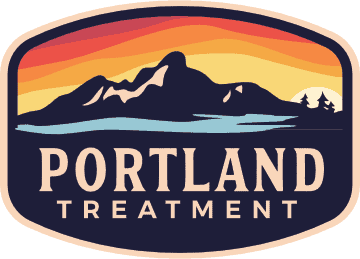Drug & Alcohol Residential Treatment in Maine
A Comprehensive, Structured Recovery Experience at Portland Treatment
When seeking help for substance use or co-occurring mental health conditions, many people turn to residential treatment programs. At Portland Treatment, we offer a intensive model similar to traditional residential treatment that provides all the therapeutic benefits of inpatient rehab—without the steep costs or rigid restrictions. Through our structured Partial Hospitalization Program (PHP) and Intensive Outpatient Program (IOP), paired with supportive housing, clients receive whole person care that mirrors inpatient drug rehab programs [1].
What Is Residential Treatment?
Residential treatment—sometimes called inpatient treatment or inpatient rehab—involves living full-time at a licensed facility while receiving structured, daily care. It is ideal for individuals who:
Have a substance use disorder (drug or alcohol addiction)
Need a space from their environment to focus on themselves
Benefit from round-the-clock structure
At Portland Treatment, we deliver an residential treatment program that combines our PHP and IOP with recovery housing, that integrates the same level of clinical intensity—without requiring clients to live on-site. Our outpatient rehab with recovery housing integrated replicates residential treatment outcomes while offering more autonomy and insurance flexibility [2].
What Makes Our Portland Treatment Recovery Housing and PHP Unique?
We combine full-day programming with recovery housing (sober living), creating a hybrid treatment structure that functions like residential treatment. Clients live in nearby sober homes and attend daily PHP or IOP at our facility. This model delivers:
Up to 6 hours of daily therapy and psychiatric care
Safe and structured housing through our vetted partners
Integrated mental health and addiction treatment
Recovery community engagement in real-life settings
A lower-cost potential, insurance-supported option that extends care duration & improving chances at successful recovery [3]
Maine’s Residential Treatment Services
Though our sober living and recovery housing is not a residential treatment program, Our PHP programming includes the core components found in high-quality inpatient rehab alongside recovery housing, such as:
Individual therapy using CBT, DBT, EMDR, and motivational techniques
Group therapy and psychoeducation
Dual diagnosis treatment for co-occurring acute mental health disorders
Medication-assisted treatment (MAT) when clinically appropriate
Life skills development, relapse prevention, and aftercare planning [4]
We also ensure seamless transitions from detox, residential, or hospital-based settings to our PHP or IOP with housing model, ensuring that your care is continuous and consistent [5].
Residential Treatment vs. Outpatient (PHP/IOP) & Recovery Housing: What’s the Difference?
Residential Treatment
- 24/7 supervised facility
Higher daily costs
Fixed residential treatment schedule
Ideal for acute stabilization needs
PHP & Recovery Housing at Portland Treatment
- Structured outpatient with housing nearby
More cost-effective and insurance-friendly
Residential treatment level services while integrating with real-life recovery
Ideal for step-down or comprehensive outpatient
While we do not provide inpatient detox or hospital-level stabilization, we work directly with leading facilities in Maine to ensure safe medical detox coordination before admission [6].
Who Is a Good Fit for Residential Treatment?
Residential treatment & similar levels of care are ideal for:
People needing daily support while rebuilding
Individuals transitioning from inpatient rehab who want structure
People living without safe or supportive living environments
Clients seeking affordability without compromising quality [7]
Begin Your Residential-Level Recovery Journey in Maine
You don’t have to choose between high-quality care and real-world balance. Portland Treatment’s hybrid residential model gives you both—clinical excellence and life integration. Let us help you take the next step.
FAQ
How long is residential treatment?
Residential treatment programs typically last between 30 to 90 days, depending on clinical need and insurance coverage. Some may extend up to six months or longer in specific cases [8].
Does insurance cover residential treatment?
Many insurance plans do cover residential treatment or our outpatient hybrid model that functions similarly. Coverage depends on medical necessity and plan specifics. We can verify your benefits quickly and help navigate the process [9].
How much does residential treatment cost?
The cost of residential treatment varies widely depending on the level of care, location, and insurance coverage. Our PHP with housing model is often more cost-effective while offering comparable therapeutic intensity [10].
Sources:
Substance Abuse and Mental Health Services Administration. (2022). Levels of care for substance use treatment. https://www.samhsa.gov/find-help/addiction-substance-use-treatment
National Institute on Drug Abuse. (2020). Principles of drug addiction treatment: A research-based guide. https://nida.nih.gov/publications/principles-drug-addiction-treatment
National Alliance on Mental Illness. (2021). Understanding treatment options. https://www.nami.org/About-Mental-Illness/Treatments
American Psychological Association. (2020). Clinical practice guidelines for the treatment of substance use disorders. https://www.apa.org/ptsd-guideline
Harvard Health Publishing. (2021). Types of addiction treatment. https://www.health.harvard.edu/mind-and-mood/types-of-addiction-treatment
U.S. Department of Health & Human Services. (2023). Detoxification and substance abuse treatment. https://www.hhs.gov/ash/oah/adolescent-health-topics/substance-abuse
Centers for Disease Control and Prevention. (2022). Substance use treatment trends and outcomes. https://www.cdc.gov/nchs/products/databriefs/db444.htm
SAMHSA. (2022). Residential treatment for substance use disorders. https://www.samhsa.gov/treatment/substance-use-disorders
Centers for Medicare & Medicaid Services. (2022). Insurance coverage for mental health services. https://www.cms.gov/healthplan/behavioral-health-coverage
Healthcare.gov. (2023). Mental health and substance abuse coverage. https://www.healthcare.gov/coverage/mental-health-substance-abuse-coverage/

